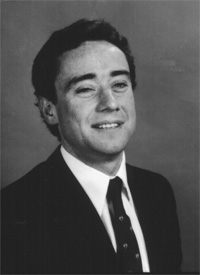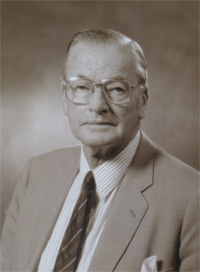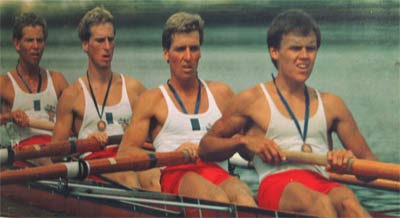History of Mercantile Rowing Club
Table of Contents
Chapters
- The River Yarra
- Early Rowing in Victoria
- The Beginnings (1880-1890)
- Mercantile in the Nineties (1890-1900)
- Sloan, Ivens and Fluctuating Fortunes (1900-1910)
- Dark Days and New Dawn (1910-1920)
- Years of Mixed Success (1920-1930)
- Through the Thirties (1930-1939)
- The Struggle for Survival (1939-1946)
- Building for Success (1946-1950)
- Mercantile to the Melbourne Olympics (1950-1956)
- Rowing to Rome (1956-1960)
- A Pink Cloud on the Horizon (1960-1965)
- The Storm and its Passing (1965-1966)
- A Clear Light Blue Sky (1966-1968)
- High Noon (1968-1970)
- A New Challenge (1970-1973)
- Fire and the Second Building Project (1973)
- Winds of Change (1973-1976)
- The Close of the Century (1976-1980)
- The Base for Success (1980-1984)
- Success (1984-1988)
- Oarsome Foursome (1988-1992)
- A Boathouse for the Best (1992-1996)
- The Rise of the Professional Coach (1996-2000)
- Golden Girls (2000-2005)
Appendices
21. The Base for Success (1980-84)
Chapter Twenty-One page 1 2 3 4 5
1983-84 season
Robert Aitken was the new President and Andrew Guerin continued as Captain. However Nick Newton took over from Andrew Guerin as Captain late in the season. There was a contrast in styles with Andrew being a very hands on Captain dealing with all the details of the job. Nick undertook the role with more of an executive style. It appears that both styles were correct for their time and Nick was to be Captain the Club through some of the most successful years.


Captain Andrew Guerin & Incoming President Robert Aitken
Given the high quality of club administrators such as Phil Ainsworth, Jeff Lawrence and Martin Owen (plus others too numerous to mention) the role of Captain was more like a conductor of a finely tuned orchestra. It was of no surprise that Guerin, Ainsworth, Lawrence and Owen were to receive Life Memberships of Mercantile.
Mercantile again was the Victorian Champion Club, with Lightweight and Junior Premierships.
Moving into the 1983-84 rowing season requires a success warning. After several years of intense effort by the club by the Club's committee and coaches, this season was big news. Record numbers of competitive oarsmen, the best schoolboy recruits in Victoria, fifteen top line coaches (twelve full time and three part time) and a totally dedicated (i.e.. non coaching) chairman of selectors in Noel Donaldson, generated much winning activity. As such this commentary will be confined to national and international highlights.
The senior eight were soundly defeated by Banks early in the season and Andrew Guerin as Captain took the extraordinary step of over riding both the coach and chairman of selectors and re-selected the eight. The senior eight comfortably defeated Banks in the state title and dominated the Victorian selections. There was some disquiet over the Captain undertaking such unilateral action and perhaps more may have occurred had not the result been so good.
The Doyle brothers decided to stand outside the Victorian squad and concentrate on their coxless pair boat and find suitable partners for the coxed four at the national selection trials. Unfortunately this decision proved to be unproductive. The only real highlight for the Mercantile heavyweights was a strong second place in the coxed four final rowing composite with a Banks oarsman.
The Kings Cup crew finished third behind NSW and SA. Interestingly this 1984 win by NSW would be their last in this event for 20 years. The Victorian crew would win 17 times during this period.
The young Mercantile lightweights again performed well against the top competition, once again making the coxless four final and combining with four members of development lightweight squad to finish second in the lightweight eight final. The Mercantile crew were the only all club crew in the final. The second tier lightweights also won the club junior heavyweight eight national title by 12 seconds.

1984 Victorian Champion Lightweight Four
Bow: Greg Pechan, 2: Joe Joyce, 3: Alan Borger, Str: Derek Mollison
The club under 19 four, coached by Phil Ainsworth, won their national championship and were later selected to represent Australia. Stephen Hair, Peter Tomanovits, Stuart Wade and Rob Law (reserve) with Peter Bester as cox would come fourth in the final in the Senior B championships in Copenhagen and bronze medal in the world junior championships in Sweden. Darryn Hope from Corio Bay Rowing Club rowed in the three seat of this boat.
This was the first men's world junior medal and a succession of national boats for coach Phil Ainsworth.
The all Mercantile crew of Greg Pechan, Joe Joyce, Derek Mollison, Alan Borger and Marty Owen (coach) were selected as the lightweight under 23 four while Glenn Deag was selected in the men's heavyweight sweep team. Again, this was to be a Trans Tasman tour.
Probably the biggest moment at the 1984 National Championships and Interstate Regatta was the Victorian youth eight featuring seven Mercantile rowers, the two reserves plus the cox and the coach; Paul McGann. Mercantilians in this boat included James Tomkins, Mick McKay, Tony Johnson, Tom Sanchez, Richard Howden and Stuart Gula who all went on to represent Australia. They won by nearly 8 seconds. The members of the under 19 four and the Mercantile youth eight (on loan to Victoria) went onto great success and lit the fuse which exploded Mercantile to national sweep dominance at all levels of competition and great success internationally.
The highlight of the international rowing season was of course the 1984 Los Angeles Olympic Games. As was the case in 1980, the Games were marred by a political boycott this time by the Soviet and Eastern Bloc countries.
Sam Patten was our sole representative in the men's eight which won the bronze medal. Even though the field was reduced by the boycott, the Aussies kept the world champion New Zealand eight to fourth place. The women's coxed four was coxed by club legend Sue Lee. They also won a bronze medal which was fair reward for an under resourced national women's program. David Doyle represented the club in the men's coxless four which finished eighth.
A great effort was provided by the men's quad scull which won silver being beaten by 0.1 of a second by the defending world champion West Germans. Gary Gullock (Wendouree) and Paul Reedy (MUBC) were in this crew. The above medals were the first by Australian crews in the Olympics since the silver medal men's eight in 1968.
The social aspect of Mercantile was diverse, productive and highly spirited during the whole of this period. The Annual General Meeting was not only legendary throughout Victoria, but also interstate and overseas. Often a business or important personal trip to sunny (?) Melbourne at the end of June would coincide with a night at the Mercantile AGM.
The AGM of 1984 was no exception. Mercantile member and then President the VRA, Justice Hubert Frederico, was officiating at the Melbourne Rowing Club AGM next door to Mercantile. The Melbourne agenda and meeting had to be postponed and ultimately cancelled due to the waves of noise coming via concrete walls from Mercantile. Freddie was to excuse himself and move next door to Mercantile. This all happened during official business at the Merc's meeting, the worst noise and cheering always came with the following "general business".
In 1985 the club captain, Nick Newton, and the chairman of selectors, Noel Donaldson, were to inform all club members that Mercantile's top priority was not to win domestic races or even win VRA premierships. The focus would be to put as many Mercantile rowers into Victorian and national crews as was possible where the only impediment would be equipment and the ever dwindling available monies.
This pronouncement did not sit well with many of our traditional membership but the recruitment, the coaching resources and the expanding quality equipment base could only be focused in one direction.The following quadrennium would be sheer excitement for all Mercantilians, past, present and future. The club would complete it's desired aim and move out of Victoria, achieve national dominance and indeed present itself to the world as a successful rowing force.
The contribution of Carlton United Breweries and Esso as sponsors during this quadrennium was of enormous benefit to Mercantile considering the fact most clubhouse and change room renovations were shelved due to the increasing demand for more rowing equipment and better equipment. In fact the club's first bow coxed four was called the "Esso"; as this sponsor basically paid for the boat. Ian (Octa) Wilson, Brian Doyle, Bill Morrison and Andy Evans were invaluable in keeping our sponsors informed and active.
Ladies Day, usually held in September of each year, was a successful function in what was a male competitive and member based institution (Mercantile was to become officially a mixed gender club in 1985 when the club Constitution was changed to incorporate female competitors and members). Prior to ascending to the Captaincy of the club, Nick Newton (a master of tact and decorum) ran Ladies Day for members and their female partners. Also during the years 1980-84, the Mercantile Ladies Auxiliary were of invaluable support to our club regatta, club functions and in general fundraising.
In closing we must remember that during the period 1980-84, Mercantile was a men's heavyweight and lightweight sweep oared club. Rowing at national and state institutes of sport did not exist. The AIS commenced in 1985 with rowing and the VIS in 1990.
What was achieved by Mercantile in the 1980's was remarkable on a national and international sense. The club only had so much clubhouse space and top line equipment and a whole lot less available cash. This was a result of a total unpaid people team effort producing a change in the profile of the sport of rowing to the benefit of future champions.
